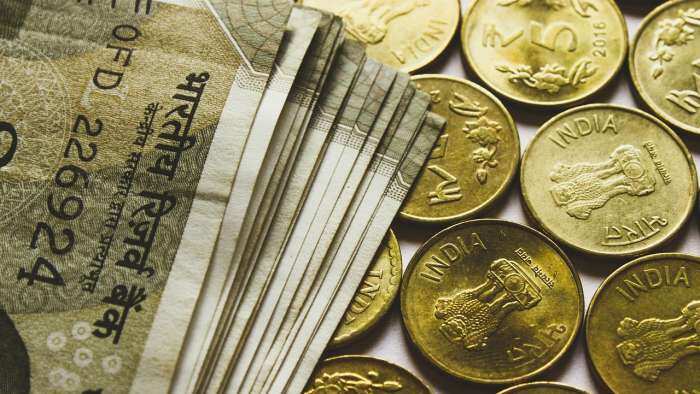Income tax return (ITR) filing ALERT! Pay Rs 13,000 if you make this Re 1 'mistake'
According to the Budget document placed in Parliament, the government has not raised the exemption limit for taxpayers from Rs 2.5 lakh to Rs 5 lakh, but has just made changes in the tax rebate under Section 87A of the Income Tax Act.

Income tax return (ITR) filing: After the latest income tax norm changes, proposed in the Interim Budget, taxable annual income up to Rs 5 lakh will get full tax rebate as Finance Minister Piyush Goyal announced in his Budget speech. But exceeding the net taxable income even by a single rupee beyond Rs 5 lakh would result in a tax liability of Rs 13,000 for income tax return filers.
According to the Budget document placed in Parliament, the government has not raised the exemption limit for taxpayers from Rs 2.5 lakh to Rs 5 lakh, but has just made changes in the tax rebate under Section 87A of the Income Tax Act, which earlier provided a rebate of Rs 2,500 for those with net taxable income up to Rs 3.5 lakh.
The government has simply increased the rebate to Rs 12,500 -- the equivalent of 5 per cent tax on the Rs 2.5-5 lakh slab -- and the eligibility criterion for claiming the rebate to Rs 5 lakh from Rs 3.5 lakh.
Thus, for a person with a tax liability up to Rs 12,500, it becomes zero after the proposed rebate. But if the liability is beyond that, he/she will have to pay the entire tax amount without the rebate -- beginning from the threshold limit of Rs 2.5 lakh.
While a person with taxable income up to Rs 5 lakh will have to pay zero tax, the tax liability will be Rs 13,000 -- Rs 12,500 as income tax plus Rs 500 as health and education cess -- if the income increases to Rs 5,00,001.
This complicates matters for taxpayers whose taxable income lies in the margins of Rs 5 lakh as any increment that takes it beyond Rs 5 lakh would result in a financial loss of Rs 13,000, instead of increasing their incomes. Even an increment of Rs 13,000 per annum (assuming their previous income was exactly Rs 4,87,001) would only help a taxpayer just break even.
This is in contrast to what would have happened had the government taken the other route and raised the income tax exemption limit from Rs 2.5 lakh to Rs 5 lakh. Since India follows a progressive taxation system, any income beyond Rs 5 lakh would have resulted in 20 per cent tax only on the amount by which the income exceeded Rs 5 lakh.
Watch This Zee Business Video
Thus, if the exemption limit would have been raised a taxable income of Rs 5,20,000 (after all deductions and a standard deduction of Rs 50,000) would have resulted in tax liability of only Rs 4,000 (plus Rs 160 as cess). But the rebate system as introduced in the Interim Budget would result in a liability of Rs 16,500 (plus Rs 660 as cess).
However, an income tax payer with even an annual gross income beyond Rs 5 lakh can reduce his/her tax liability to zero by making prudent investments and claiming prevalent income tax deductions, like insurance, interest on home loan, education loan, medical expenses and other expenditures.
Get Latest Business News, Stock Market Updates and Videos; Check your tax outgo through Income Tax Calculator and save money through our Personal Finance coverage. Check Business Breaking News Live on Zee Business Twitter and Facebook. Subscribe on YouTube.
RECOMMENDED STORIES

Power of Compounding: How soon will monthly SIP of Rs 6,000, Rs 8,000, and Rs 10,000 reach Rs 5 crore corpus target?

SBI Guaranteed Return Scheme: Know how much maturity amount you will get on Rs 2 lakh, 2.5 lakh, 3 lakh, 3.5 lakh and Rs 4 lakh investments under Amrit Vrishti FD scheme

SBI Senior Citizen FD Rate: Here's what State Bank of India giving on 1-year, 3-year, 5-year fixed deposits currently

SBI Senior Citizen Latest FD Rates: What senior citizens can get on Rs 7 lakh, Rs 14 lakh, and Rs 21 lakh investments in Amrit Vrishti, 1-, 3-, and 5-year fixed deposits
06:48 AM IST









 Income tax return filer base up 2.2 times in 10 years, 5 times growth in Rs 50 lakh-plus income category: Sources
Income tax return filer base up 2.2 times in 10 years, 5 times growth in Rs 50 lakh-plus income category: Sources  This is India's only tax-free state, residents earn crores without paying Income Tax
This is India's only tax-free state, residents earn crores without paying Income Tax I-T Act review: Government to invite suggestions from industry next month
I-T Act review: Government to invite suggestions from industry next month Net direct tax collections grow 15% to Rs 9.92 lakh crore in a year; advance tax collections up 19%
Net direct tax collections grow 15% to Rs 9.92 lakh crore in a year; advance tax collections up 19% Income Tax Day 2024: Nirmala Sitharaman to preside over celebrations in New Delhi on Wednesday
Income Tax Day 2024: Nirmala Sitharaman to preside over celebrations in New Delhi on Wednesday